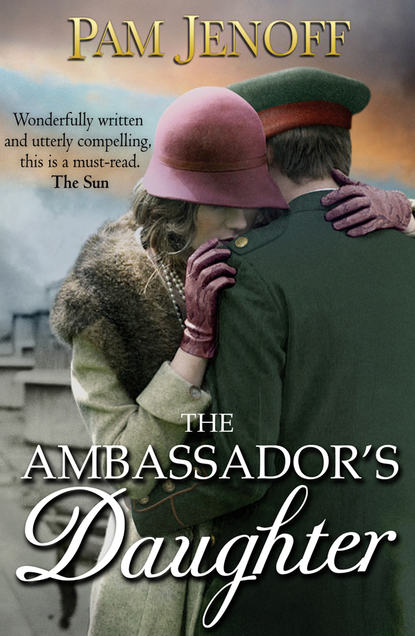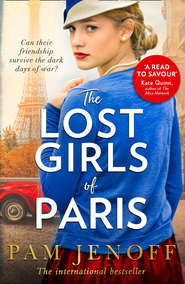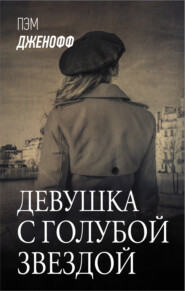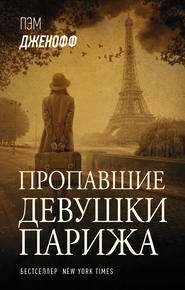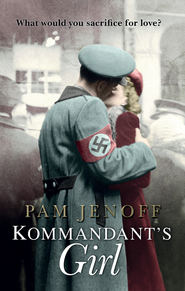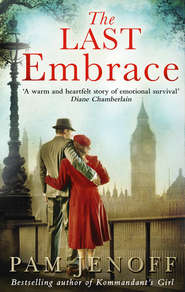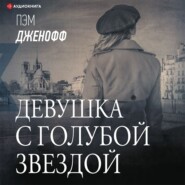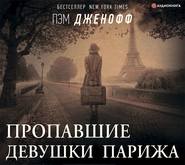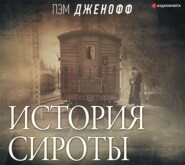По всем вопросам обращайтесь на: info@litportal.ru
(©) 2003-2024.
✖
The Ambassador's Daughter
Настройки чтения
Размер шрифта
Высота строк
Поля
I watch, fascinated. It is unusual to see a female musician, or a woman doing anything other than accompanying a man on his arm at these affairs. Of course, there are the cooks and maids and such, but the woman’s high-collared silk blouse and straight posture does not bespeak the serving class. She plays with her whole body, shoulders swaying side to side as her hands traverse the keys, partners in a dance.
She finishes playing and the last note resonates throughout the salon, but the guests are too engrossed in their conversations to notice or applaud. “That was lovely,” I remark. The woman glances up and I wait for her to thank me, or at least smile. But a flicker of something close to annoyance crosses her face. “Mahler, wasn’t it?” I say.
She blinks. “Yes, from his Sixth Symphony.” Her voice is low and husky, just short of masculine, and her French is accented slightly, hailing from somewhere eastern I cannot place.
“One of my favorites, though I haven’t heard it since before the war. I didn’t think they would have you play it here.” My words come out more bluntly that I’d intended.
“Music is not political.”
I want to tell her that everything is political now, from the wine that is served (always the chardonnay, never the Riesling) to the color of the tablecloths (a patriotic French blue). But I do not know her well enough to get into a debate.
“I play what I want,” the woman adds. She adjusts the thick chignon of hair, the chestnut color broken by a few strands of gray. “It’s not as if they pay me.”
“Oh?”
The woman shakes her head. “My parents won’t allow it. They think it would be unseemly to take money.” It sounds odd, a woman who must be close to forty listening to her parents. But I will always care about Papa’s approval.
She points through the doorway toward a cluster of silver-haired men in the main ballroom. “My father. He’s a diplomat.”
“Mine, as well.” I leap too eagerly at the commonality, ignoring the fact that Papa’s title is in fact only a formality, conferred to credential him to the conference.
“Mine is with the Polish delegation.” My excitement fades. The Germans and Poles had been on opposite sides of the war, enemies. We could not, in fact, have less in common. “I’m Polish, or will be if they ever get around to making us a country again,” she adds. I nod. Poland had been partitioned among Germany, Austria and Russia for the better part of a half century. “Hard to see how they’ll have the time with all of this socializing.” She gestures toward the larger gathering. “You’re German, aren’t you?”
I flush. I had worked so hard to remove any trace of an accent from both my French and English. But a musician with a trained ear, the woman can hear the slight flaws in my speech and discern their origin. “Yes.” I hold my breath, waiting some sign of disapproval.
Her expression remains neutral. “Or at least you are until they get around to making Germany no longer a country,” she says wryly.
I cringe at this. It is the great unanswered question of the peace conference, whispered about in the salons, debated openly in the bars and parties: What will happen to Germany? “Back home they believe that it will be a fair peace.”
“Yes, they have to, don’t they? I’m Krysia Smok,” she says, extending a hand.
“Margot Rosenthal. A pleasure.” I want to mention the fact that I have seen her before but that would beg the question of what she was doing in the park, too intrusive of someone I’ve just met.
“I didn’t think the German delegation was coming until late spring,” she remarks.
“They aren’t. That is, we aren’t part of the delegation. My father is a professor, he teaches at Oxford at the moment….” I can hear myself babbling now. “And he’s detailed to the conference, not the delegation.” I study her face, wondering if she is impressed by the distinction.
From behind the column comes tittering laughter. “Really, even the kitchen staff have political aims,” a woman comments in English. “Are we to have soufflé tonight or a political rally?”
“They say the Japanese will demand a statement of racial equality, too,” her companion replies in a hushed tone, as though saying it aloud might make it real.
“Americans,” Krysia scoffs as they walk away. “They think they’re so progressive. And yet women in the States still do not have the right to vote.” I consider her point. Women were only given the vote in Germany a year ago and I haven’t been back to have the chance.
Papa is at my side then. “Darling, I’m sorry to have left you. I was waylaid by a Dutchman.”
“It’s quite fine. Did you hear about the kitchen boy?”
“Yes, Indochinese, by the sound of things, and seeking Wilson’s support for some sort of autonomy.”
“Do you think he lost his job?”
“I think,” Papa replies gently, “that he did what he set out to do at the conference and …” He stops midsentence and turns to Krysia. “Forgive my manners.” Papa is not like some of the men at the conference, seeing through the staff as though they are not here. “I’m Margot’s father, Friedrich Rosenthal.”
“Papa, this is Krysia Smok.”
She tilts her head. “Rosenthal, the writer?”
He shifts, uncomfortable with the attention. “I’ve written a few academic books, yes.”
“I’m more acquainted with your articles.” How is Krysia, a pianist from Poland, familiar with my father? “I particularly enjoy your work on the interplay between the suffragist cause and socialism,” she adds, animated now.
Papa bows slightly. “I’m humbled. And I’d be delighted to discuss the subject with you further if you’d like to come around for tea tomorrow. For now, I must excuse myself. Margot, I’m afraid I need to stay to speak with one of the British representatives after this.” He pats my cheek. “The car will be out front for you. Don’t wait up for me. I shall see you in the morning.”
When he has gone, I turn back to Krysia. “How do you know my father’s work?”
“His writings on the advancement of women in the communist system have been very helpful to the suffragist cause.”
“Papa isn’t a communist,” I reply quickly, though I’ve never read Papa’s work myself.
She doesn’t hear me, or pretends not to. “I detest pure academics. But your father, well, he was quite active in the protests in his day.” Papa out of his study is an animal removed from natural habitat; it is difficult to fathom him on the streets, chanting angrily like the Serb nationalists in front of the foreign ministry on the Quai d’Orsay. There is much about him, I realize, that I do not know.
Her gaze travels the room and stops on the catering manager who has entered the salon and is staring at us. The reception is winding down and Krysia is meant to be playing as the guests leave, not talking. “It was a pleasure meeting you,” she says, shuffling through her sheet music.
“Come to tea tomorrow,” I press. I’m lonely for company beyond the superficial chatter of the parties and I’ve enjoyed these few brief moments of conversation more than any since our arrival.
She shakes her head, demurring. “Is it because we are German?”
“Of course not.” Her tone is sincere. “I have a prior obligation. Another time.”
“Here.” I reach into my pocket and pull out one of the calling cards that Tante Celia had insisted I need. They seemed so frivolous at the time, but I’m glad to have them now. “In case you change your mind.”
“Thank you.” Krysia puts the card in her pocket in a way that tells me she will never use it.
She resumes playing and I walk from the salon, deflated. In the main ballroom, the gathering has begun to dissipate. I make my way to the cloakroom and when I return, the piano bench is empty.
Outside, I scan the line of cars and find ours. There is a dampness to the frosty night air that I can almost taste. As I get in, I see Krysia walking from the hotel with her parents. She kisses them each on the cheek and starts in the other direction, her blue cape radiant in the sea of black. I watch as she slips away, quiet as a cat, then ducks into the alleyway before reaching the boulevard.
Where is she going alone at night? It is after ten and there is still a curfew. I climb from the car once more. “I’ll make my own way,” I say to the driver, shutting the door before he can protest.
I weave my way through the departing crowd, breaking free and turning down the alleyway where I last saw Krysia. The street is dark and I fear that I have lost her, but I hear footsteps ahead and quicken my pace. A moment later the passageway opens onto a wide avenue and Krysia appears in a yellow pool of streetlight. She moves swiftly, almost seeming to fly beneath the billowing cape. I struggle to stay back far enough so as not to be noticed.
Krysia reaches the corner and stops. Then she turns, facing me before I have time to hide. “You again!” I freeze, an animal trapped. “Are you following me?”
“No—” I protest too quickly.
“I was joking, of course. You’re staying in the area?”
“My hotel is nearby, but I am going to visit some friends.” I regret the lie as soon as I have spoken, the notion that I would be calling on anyone at this hour of the night hardly plausible.





